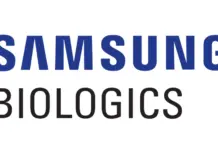A novel approach within the genetic engineering of cells promises major enhancements when it comes to speed, effectiveness, and reduction in cellular toxicity as compared to the current methods. The approach could also go on to power advanced cell therapy development for cancer as well as other diseases, as per a study rolled out by the researchers at the University of Pennsylvania.
The researchers went on to find that the protein fragments that are used by some of the viruses to help them get inside the cells can also be used to get the CRISPR-Cas gene editing molecules inside the cells with extraordinarily high efficiency as well as low toxicity to the DNA-containing nuclei.
The researchers expect the novel technique to be significantly useful in terms of modifying the T cells as well as other cells from the patient’s own body in order to make cell therapies. It is well to be noted that one such application can be CAR-T therapy, which makes use of specially modified immune cells from a patient in order to treat cancer. The T cells, which happen to be a type of white blood cells, are extracted from the patient and reprogrammed in order to find out as well as attack the cancer cells as and when they are introduced within the blood stream.
The first FDA-approved CAR-T therapy was developed at Penn Medicine and went on to receive the nod in 2017. At present, there are six FDA-approved CAR-T cell therapies across the US. The therapies have completely revolutionised the treatment of certain B-cell leukaemias as well as lymphomas and other blood cancers, giving hope to patients who otherwise had little anticipation of long-term remission.
As per E. John Wherry, Richard Schiffrin, and Barbara Schiffrin, the new approach that builds on Penn Medicine’s history of cells as well as gene therapy innovation has the capability to be a significant enabling technology when it comes to engineered cellular therapies. The molecules get derived from the ancient bacterial antiviral defences and are designed to eliminate the DNA at the desired locations in the genome of the cell.
This approach can be used to replace the faulty genes with the rectified ones or even delete or modify the genes so as to elevate cellular function. It is well to be noted that there are some systems that can also add genes that give out new properties to CAR T cells, like the ability to gauge the tumours or be well-versed with and withstand the harsh tumour microenvironment, which goes on to exhaust the T cells.
Though the CRISPR-Cas systems are widely used already as standard lab tools when it comes to molecular biology, their use in modifying the patient’s cells in order to make cell-based therapies is limited, in part since CRISPR-Cas molecules can be really hard to get into the cells and thereafter in the cells’ DNA-containing nuclei.
Co-senior author from the Daniel S. Och University, Shelley L. Berger, opines that the present methods when it comes to getting the CRISPR-Cas systems into the cells, which also include the usage of carrier viruses as well as electric pulses, happen to be inefficient for cells that are taken straight from the patients. These actions go on to kill several cells that they are used on and even cause unwanted changes in gene activity.
The researchers in the study also explored the usage of small protein fragments that are virus-derived, known as peptides, to drive CRISPR-Cas molecules in a more effective way via the external membranes of primary human cells and into the nuclei. Significantly, the researchers also found that a fused combination concerning two modified peptides, one in HIV and the other in influenza virus, can be mixed with the CRISPR-Cas molecules so as to get them within the primary human or mouse cells with their nuclei of efficiency up to 100%, depending on the type of cells, with nearly no toxicity or gene expression alterations.
The team went on to demonstrate the approach called PAGE for many types of cell therapies that are envisioned, such as CAR-T cell therapies. Besides the potential usage in cells as well as gene therapies, the authors go on to note that the PAGE approach could very well see a wide application when it comes to basic scientific research.
Standard CRISPR-Cas inefficiency in cell penetration methodology has meant that gene editing when it comes to creating mouse models of diseases mostly requires a multi-step and time-consuming process of generating transgenic mice so as to introduce the gene editing machinery in the DNA. PAGE due to its low toxicity and high efficiency, might help in fast, efficient gene editing in the ordinary lab mice. The simplicity as well as the power of the peptide-assisted concept suggest that it could probably be adapted in the future for delivery in the primary cells of some other genome-editing proteins or, for that matter, protein-based drugs, said Junwei Shi, the co-senior author.





























